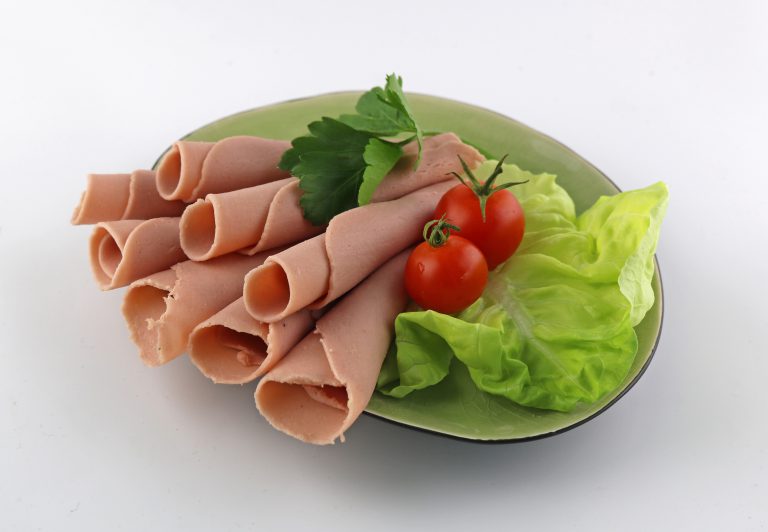Plant based meat has become a major trend in 2022. This trend was particularly visible at SIAL, the world’s leading food trade fair held every two years in Paris. Never have plant-based alternatives been so prominent. And more and more companies in the meat processing industry are capitalizing on this trend. As plant-based foods continue to gain ground, industry observers expect the category to become a larger part of our diet in the coming years.
Traditional canned meat also gets vegetable variants
 Canned meat is a high-quality, protein-rich food that remains stable at room temperature and is extremely convenient. Consumers can choose from a wide variety of meat-based products. Whole muscles, meat stews, luncheon meat, ham, sausages, sauces with meat pieces, and paste products are instances of canned meat products.
Canned meat is a high-quality, protein-rich food that remains stable at room temperature and is extremely convenient. Consumers can choose from a wide variety of meat-based products. Whole muscles, meat stews, luncheon meat, ham, sausages, sauces with meat pieces, and paste products are instances of canned meat products.
In Korea, Singsegae food is pushing hard to offer plant-based alternatives to traditional canned meats.” Homel Foods’ Spam has dominated the global canned ham market since 1926,” Shinsegae Food’s chief executive officer, Song Hyun Suk, said during a recent press conference. “But in almost 100 years, we have become the first to make a vegan canned ham that has almost the same taste and texture”. With the vegan canned ham, Shinsegae Food plans to boost its global business with its U.S. subsidiary Better Foods.
Canned vegetable ham
 The vegetable ham is made from soy protein and vegetable oil and has a large amount of dietary fiber. It does not contain sodium nitrite, a preservative used in processed meat. In 2015, the World Health Organization designated sodium nitrite as a prime carcinogen.
The vegetable ham is made from soy protein and vegetable oil and has a large amount of dietary fiber. It does not contain sodium nitrite, a preservative used in processed meat. In 2015, the World Health Organization designated sodium nitrite as a prime carcinogen.
Song stressed that if consumers eat vegetable canned ham, instead of pork ham, they can contribute to eco-friendly food culture and animal welfare. “Pigs, cows, chicken and other animals, mostly raised in poor conditions, emit methane, a gas sixteen times more toxic than carbon dioxide. If we switch to alternative meat, we can reduce the greenhouse gas by 90 percent.”
Korean meat producers invest in plant-based meat substitute production
Shinsegae Food’s will invest $10 million by 2023 to establish the global infrastructure needed to produce plant-based meat products and adopt research and development technology from the US.
CJ CheilJedang recently announced plans to expand its overseas and domestic sales of plant-based meat products to 200 billion won ($151.9 million) by 2025.
In addition to these two retailers, Lotte Food and Nongshim have launched vegan meat brands Zero Meat and Veggie Garden, respectively.
Foodtech start-ups are also jumping into the fast-growing plant-based meat market. Examples include Zikooin Company’s Unlimeat, VioMix Tech’s Gogi Daeshin and Organica’s BriteBelly.


